
Find Help
More Items From Ergsy search
-

Advancements in Mental Health Resources for Families
Relevance: 100%
-
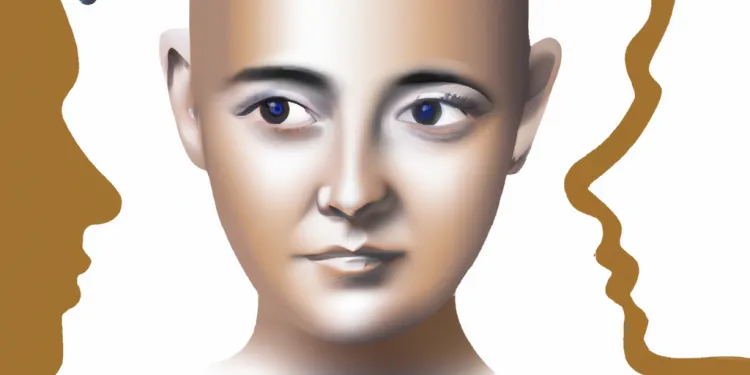
Mental Health Resources for Families
Relevance: 82%
-

Mental Health Support Resources for Families
Relevance: 78%
-
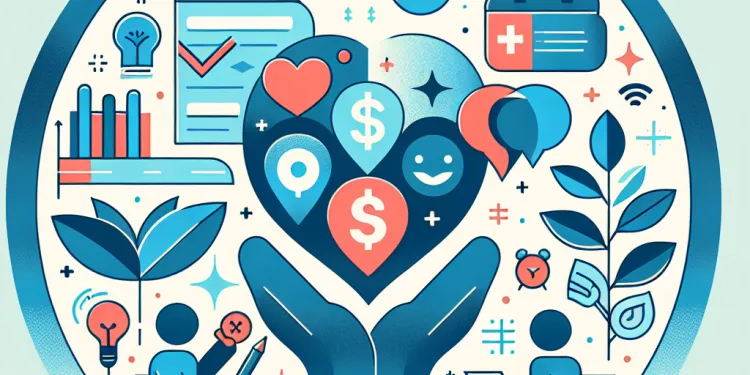
Mental Health Support for Families: Resources and Strategies
Relevance: 74%
-

Mental Health Support for Families: Resources and Helplines
Relevance: 73%
-

Mental Health Support for Families: Resources and Guidance
Relevance: 73%
-

Mental Health Support for Families - Latest Resources and Guidance
Relevance: 73%
-

Mental Health Support Resources in the UK
Relevance: 63%
-

Accessing Mental Health Support Resources in the UK
Relevance: 58%
-

What mental health resources are available for seniors?
Relevance: 57%
-

Mental Health Impact of Cost of Living Crisis and Support Resources
Relevance: 53%
-

Mental Health Support Services in the UK
Relevance: 46%
-

Mental Health: Laura's Story | NHS
Relevance: 46%
-
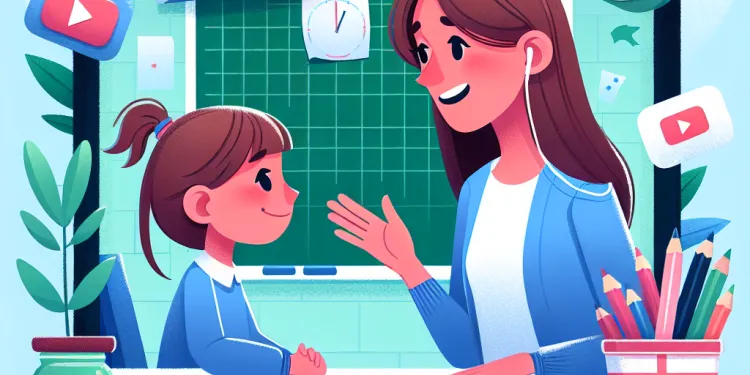
Understanding Mental Health in Children
Relevance: 45%
-

Current Challenges in Youth Mental Health Services
Relevance: 43%
-

Navigating Mental Health Services for Children and Adolescents
Relevance: 43%
-

Impact of Rising Living Costs on Family Health
Relevance: 41%
-

Tackling Youth Mental Health: Community Initiatives and Solutions
Relevance: 41%
-
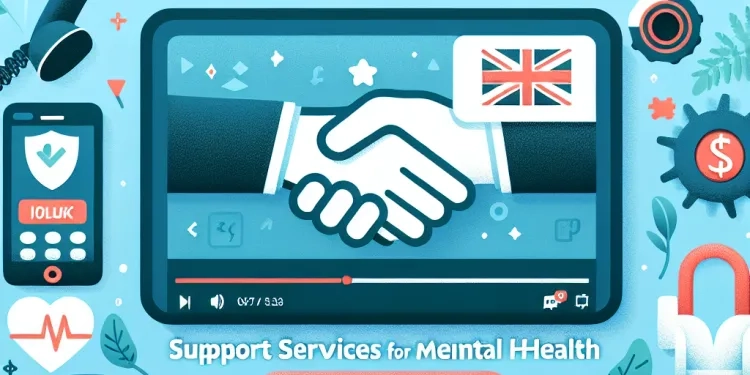
Support Services for Mental Health Amid Economic Uncertainty
Relevance: 41%
-

NHS Unveils Revolutionary Mental Health Support Initiative
Relevance: 40%
-

What is the impact of obesity on mental health?
Relevance: 39%
-
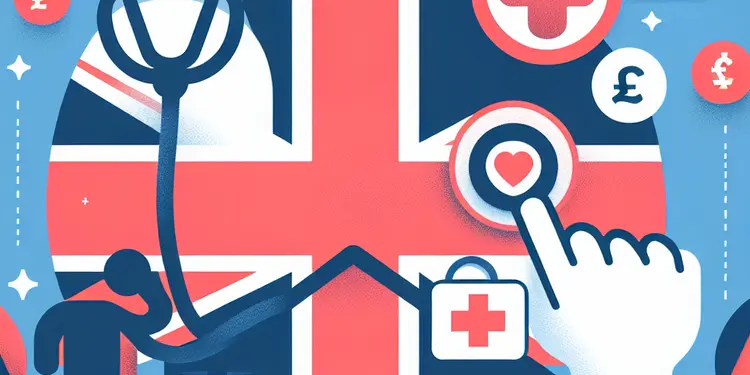
Can community helpers access physical health resources?
Relevance: 39%
-
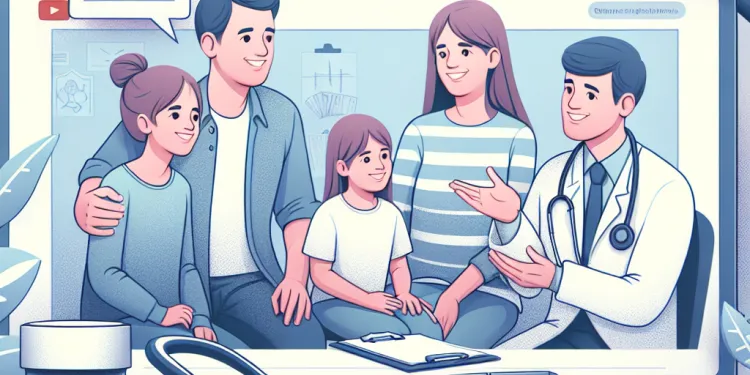
Managing Chronic Illness Within the Family
Relevance: 38%
-

Can primary care support workers access mental health support?
Relevance: 38%
-

New Mental Health Strategy Launched to Address Youth Anxiety Epidemic
Relevance: 38%
-

Mental Health Services Struggle to Cope Amid Record Demand
Relevance: 38%
-

Essential Tips for Mental Health and Well-Being Amidst Rising Living Costs
Relevance: 37%
-

Can relationship problems be resolved to improve mental health?
Relevance: 37%
-

Short Films About Mental Health - Trauma PTSD
Relevance: 37%
-

What is the role of mental health assessments in indefinite sentences?
Relevance: 36%
-
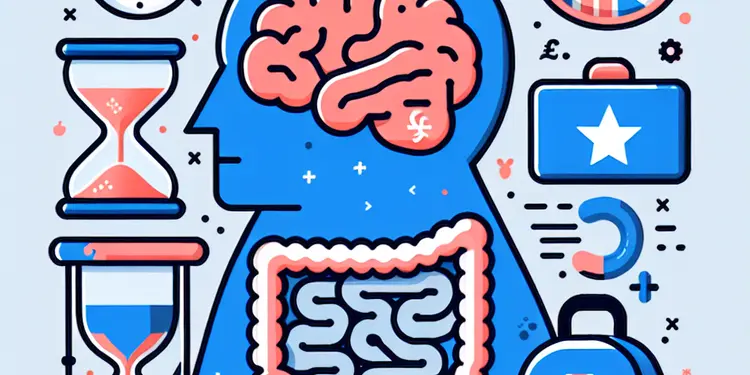
Can gut health affect mental health as one ages?
Relevance: 36%
-

What resources have been introduced for families involved in cross-border disputes in 2026?
Relevance: 36%
-

How do eating disorders affect mental health?
Relevance: 36%
-

Can ending a toxic relationship improve my mental health?
Relevance: 36%
-

Short Films About Mental Health - Anxiety
Relevance: 36%
-
Can eating disorders occur with other mental health conditions?
Relevance: 36%
-

Short Films About Mental Health - Personality Disorders
Relevance: 36%
-

Can concussions lead to mental health issues?
Relevance: 35%
-

How does sugar impact mental health?
Relevance: 35%
-

Can mixed exercises improve mental health?
Relevance: 35%
Advancements in Mental Health Resources for Families in the United Kingdom
The past decade has seen significant advancements in mental health resources available to families in the United Kingdom. These improvements have been driven by a growing awareness of mental health issues, increased funding, and technological innovations. Understanding these developments can help families better navigate the complex landscape of mental health care.
Telehealth Services
One of the most transformative advancements in mental health resources is the rise of telehealth services. Telehealth allows individuals to access mental health professionals remotely through video calls, making it easier for families to seek help without the need to travel. This is especially beneficial for those living in remote or underserved areas. NHS digital services have ramped up their telehealth offerings, providing timely assistance to people of all ages.
Increased Funding and Government Initiatives
The UK government has recognized the importance of mental health and has increased funding for mental health services. Initiatives like the NHS Long Term Plan have earmarked substantial resources for improving mental health care. This includes an emphasis on early intervention, which is crucial for families dealing with mental health issues. Schools and communities have also seen increased investment in mental health education and support programs.
Digital Mental Health Tools
Technology has enabled the development of various digital tools aimed at improving mental health. Apps like Headspace and Calm offer mindfulness and meditation exercises that can be beneficial for both adults and children. Online platforms provide Cognitive Behavioral Therapy (CBT) resources, self-help programs, and peer support forums which can be exceptionally supportive for families navigating mental health challenges.
Community-Based Support
There has been a significant push towards strengthening community-based mental health support. Local councils and charities like Mind and YoungMinds are increasingly offering workshops, support groups, and free counseling services. These community-based efforts provide a more informal and accessible means of support for families, fostering a sense of togetherness and shared experience.
Workplace Mental Health Programs
Employers across the UK are now more mindful of mental health, contributing to overall family well-being. Workplaces have started to implement comprehensive mental health programs, which include Employee Assistance Programs (EAPs) that provide confidential support services for workers and their families. Flexible working hours and mental health days are becoming more common, helping to reduce stress and improve work-life balance.
Conclusion
The advancements in mental health resources in the United Kingdom have been instrumental in supporting families. From the convenience of telehealth services to increased government funding and innovative digital tools, these resources are now more accessible and effective than ever. By taking advantage of these advancements, families can better manage mental health challenges, ensuring a healthier and more supportive environment for everyone involved.
New Help for Mental Health in the UK
Over the past 10 years, the UK has made big improvements in mental health help for families. More people know about mental health now, and there's more money and new tech to help. Families can use these changes to find support more easily.
Getting Help Online
Now, you can talk to a mental health expert using video calls. This is called telehealth. It means you don't have to travel far to get help. This is really good for people who live in places where it's hard to see a doctor. The NHS can now help people of any age this way.
More Money and Help from the Government
The UK government knows mental health is important. They are giving more money to mental health services. They have plans to help people early. Schools and local areas are getting more money for teaching and helping with mental health.
Help from Apps and the Internet
There are now tools on the internet to help with mental health. Apps like Headspace and Calm teach how to relax and meditate. There are also online places for learning about mental health and talking to others for support.
Help in the Community
Local groups and charities like Mind and YoungMinds are offering help too. They have workshops, support groups, and free counseling. This makes getting help easy and brings people together.
Help at Work
Businesses in the UK are caring more about mental health. They have programs to help workers and their families. Workers can now have flexible hours and mental health days, which helps them feel less stressed.
Conclusion
There's more help for mental health in the UK now. With telehealth, more money, and new tech tools, families can get the help they need more easily. Using these resources can make handling mental health issues better for everyone.
Frequently Asked Questions
What types of mental health resources are available for families in the UK?
The UK offers a variety of mental health resources for families, including NHS mental health services, private therapy options, local support groups, online counselling, and emergency support lines such as Samaritans and Mind.
How can families access NHS mental health services?
Families can access NHS mental health services by visiting their GP for a referral. They can also use NHS 111 for immediate advice or visit the NHS website for more information on available services.
Are there online mental health resources available for families?
Yes, numerous online mental health resources are available for families, including platforms like Kooth, which offers online counselling for young people, and Big White Wall, a community platform for mental health support.
What support is available for children and teenagers struggling with mental health issues?
Support for children and teenagers includes child and adolescent mental health services (CAMHS), school counselling, youth clubs, and dedicated helplines such as Childline.
Can parents get mental health support specifically tailored to their needs?
Yes, parents can access various support tailored to their needs, including parent support groups, family therapy, and resources from organizations like Family Lives and Gingerbread.
How can families deal with a mental health crisis?
In a mental health crisis, families can call NHS 111, contact their GP for an emergency appointment, go to the nearest A&E, or call emergency services on 999 if immediate danger is present.
Are there any financial support options for families seeking mental health care?
Financial support options include free NHS services, local authority grants, benefits like Personal Independence Payment (PIP), and charitable organizations that offer grants or subsidized therapy.
What are the warning signs that a family member might need mental health support?
Warning signs can include persistent sadness, withdrawal from social activities, changes in sleep or appetite, mood swings, and expressions of hopelessness or suicidal thoughts.
How can families educate themselves about mental health issues?
Families can educate themselves through reputable websites like Mind and the NHS, attending workshops and seminars, reading books and articles on mental health, and joining support groups.
What role can schools play in supporting children's mental health?
Schools can play a significant role by providing access to counsellors, implementing mental health education in the curriculum, creating a supportive environment, and working with families to address children's needs.
Can workplace programs help parents dealing with mental health issues?
Yes, many workplaces offer Employee Assistance Programs (EAPs) that provide confidential counselling and support services for employees, including mental health resources for parents.
Are there any specific mental health resources for minorities or marginalized communities?
Yes, organizations like Black Minds Matter UK and The LGBTQ+ Switchboard offer tailored mental health support for minorities and marginalized communities, addressing their unique needs and challenges.
How can families support a loved one with a mental health condition?
Families can support a loved one by being empathetic, encouraging them to seek professional help, staying informed about their condition, and being patient and understanding.
What technologies are available to support mental health in families?
Technologies include apps like Headspace and Calm for mindfulness, mood tracking apps, teletherapy platforms like BetterHelp, and online communities that offer peer support.
How can families maintain good mental health practices at home?
Families can maintain good mental health practices by encouraging open communication, engaging in physical activities together, creating a balanced routine, practising mindfulness, and prioritizing quality time with each other.
What mental health help can families get in the UK?
Families in the UK can find different types of help for mental health. Here are some ways they can get support:
- Talking to Someone: Families can talk to doctors or trained people who can help.
- Support Groups: Families can join groups to meet others who understand what they are going through.
- Helplines: There are phone numbers families can call anytime for advice and support.
- Online Resources: There are websites and videos with information and tips to help with mental health.
Using these tools can make it easier to get the help families need.
The UK has many ways to help families with mental health. You can get help from:
- NHS mental health services
- Private therapy (you pay for this)
- Local support groups (people who meet to help each other)
- Online counselling (talking to someone on a computer)
- Emergency support lines like Samaritans and Mind (call if you need help quickly)
How can families get help from NHS mental health services?
Does someone in your family need help with their feelings or thoughts? The NHS can help. NHS stands for National Health Service.
Here is how you can get help:
- Visit your doctor. They can talk with you and help you find the right service.
- You can find information on the NHS website. It has lots of advice and tips.
- Some services let you get help directly. You might be able to call them or visit their website.
If reading is hard, ask someone you trust to help. You can also use tools that read text aloud, like a screen reader.
Families can get help with mental health from the NHS. They can go to their doctor to ask for a referral. They can also call NHS 111 for quick advice. The NHS website has more information about the help you can get.
Can families find help for mental health online?
Yes, families can find help on the internet for mental health.
- Websites: Some websites have easy advice about mental health.
- Games and Apps: There are games and apps that teach about feelings and your mind.
- Videos: You can watch videos that explain how to feel better.
- Groups: Online groups where families can talk and share stories.
If you need help understanding any website, ask a family member or a friend. Use tools that read text out loud or make text bigger to help you read. The computer or tablet can help with this!
Yes, there are many places online where you can get help for mental health. For example, Kooth helps young people by talking with them online. There is also a place called Big White Wall where people can chat and support each other about mental health.
What help can children and teenagers get for mental health problems?
Mental health means how we feel and think.
Sometimes, children and teenagers can feel very sad, worried, or upset. This can be hard to handle.
There are people who can help:
- Talk to an Adult: Find an adult you trust like a parent, teacher, or school counselor. They can listen and help you figure out what to do.
- See a Doctor: A doctor can talk to you about your feelings and might know ways to help you feel better.
- Therapists and Counselors: These are people who know a lot about feelings. They can talk to you and help you find ways to feel better.
- Helplines: You can call for help on the phone. People on the line can listen and help you.
Remember, it is okay to ask for help. Everybody needs help sometimes.
Help for kids and teenagers includes help from child and teenage mental health services (CAMHS), talking with a school counselor, going to youth clubs, and calling special helplines like Childline for support.
Can parents get help with their mental health just for them?
Parents can find special help for their mental health. This help is made just for them and their needs.
Here are some ways parents can get help:
- Talk to a doctor or therapist. They can give advice and support.
- Join a group with other parents. Sharing stories can help.
- Use apps and websites that give tips on feeling better.
If you are a parent needing help, remember it is okay to ask for it. Taking care of your mind is important.
Yes, parents can get different types of help. They can join parent support groups, go to family therapy, or get help from places like Family Lives and Gingerbread.
How can families help when someone is very upset?
When someone in the family feels really bad, it can be hard. Here are some ways to help:
- Stay calm: Try to be as calm as you can.
- Listen: Let them talk about their feelings. Be a good listener.
- Ask for help: Tell a doctor, nurse, or teacher. They know how to help.
- Spend time together: Be with them. Do fun things to feel better.
- Make a safe space: Help them feel safe at home.
Helpful Tools:
- You could call a helpline. They are ready to help anytime.
- Use pictures or drawings to help talk about feelings.
If someone is having a hard time with their feelings, their family can get help by:
- Calling NHS 111 for advice.
- Speaking to their doctor for a quick appointment.
- Going to the closest hospital with an emergency room (A&E).
- Calling 999 if they need help right away.
Can families get help to pay for mental health care?
If you are looking for help with money to pay for mental health care, there are some options that might help you:
- Insurance: Check if your health insurance covers mental health care.
- Government Programs: See if there are programs like Medicaid or Medicare that can help.
- Community Services: Look for local services or charities that offer free or low-cost care.
- Talk to Your Doctor: Ask your doctor about resources or ways to get help.
These steps can help you find and afford the care you need.
There are ways to get help with money. You can use NHS services that are free. Local councils might give you grants. You can also get money like Personal Independence Payment (PIP). Some charities give grants or make therapy cheaper.
What are the signs that someone in your family might need help for their feelings or thoughts?
Look for changes in how they feel, act, or think.
- Do they seem sad or worried a lot?
- Are they angry or upset more than usual?
- Do they not want to do things they used to enjoy?
- Are they having trouble with friends or family?
- Do they say things that don't make sense?
- Are they sleeping too much or too little?
- Are they eating a lot more or less than usual?
If you notice these signs, talk to them and tell a trusted adult. They might need to see a doctor or counselor.
Look out for signs like feeling very sad all the time, not wanting to be with friends, sleeping a lot or not sleeping enough, not eating much or eating too much, having big mood changes, or saying things like they feel hopeless or want to hurt themselves.
How can families learn about mental health?
Families can learn about mental health in easy ways:
- Read simple books or watch videos about mental health.
- Talk to a doctor or nurse for advice.
- Join a support group to meet others who want to learn.
- Use apps that help teach about feelings and mental health.
- Visit websites made for children and families to learn together.
Families can learn from good websites like Mind and the NHS. They can also go to workshops and talks. Reading books and articles about mental health helps too. Joining support groups can also help them learn more.
How can schools help kids feel better and happy?
Schools can do things to help kids be happy and okay. They can:
- Have teachers and helpers who listen to kids.
- Make school a safe and fun place to be.
- Teach kids how to talk about their feelings.
- Help kids make friends and play nicely.
- Call a special helper if a child needs more help.
If you feel sad or worried, tell someone who can help, like a teacher or a family member.
Schools can help a lot! They can have people to talk to, teach kids about feelings, make school a nice place, and work with families to help the children.
Can programs at work help parents with mental health problems?
Programs at work can help parents who have mental health problems. These programs can give support and advice. They may offer tips on how to feel better. Parents can talk to someone if they feel sad or stressed.
Using simple tools can be helpful. Writing down feelings in a journal can help. Talking to friends or family is good too. Remember, asking for help is okay.
Yes, many workplaces have programs to help workers. These are called Employee Assistance Programs (EAPs). They offer private counselling and help. This can include talking about mental health, especially for parents.
Are there special mental health resources for minority groups or people who feel left out?
Some groups need extra help with mental health.
- Look for groups that support your community.
- Ask a trusted person for advice.
- Use apps that help with feelings.
- Talk to a helper who knows your culture.
Yes, there are groups that help with mental health for certain people. Black Minds Matter UK helps Black people. The LGBTQ+ Switchboard helps LGBTQ+ people. They understand what these groups need and what they go through.
How can families help someone they love who has a mental health problem?
Here are some ways families can help:
- Listen: Be there to listen when they want to talk.
- Learn: Read and learn about their mental health problem.
- Be Kind: Show love and kindness. Let them know you care.
- Help with doctor visits: Go with them to see the doctor if they want.
- Talk about feelings: Encourage them to share their feelings, and share yours too.
- Encourage fun activities: Do fun things together to make them feel good.
If you need more help, you can call a support line or talk to a doctor or counselor.
Families can help a loved one by being kind, suggesting they talk to a doctor, learning about their feelings, and being patient and caring.
What tools can help families with mental health?
There are different tools that can help families feel better. Here are some simple ones:
- Phone Apps: Special apps can help people feel calm. They can help manage feelings and sleep better.
- Online Talk Groups: Families can join groups on the internet to talk with others and share experiences.
- Video Calls with Helpers: Families can talk to a therapist or counselor over video calls to get advice and support.
- Relaxation Videos: Watching videos about relaxation and breathing can help people feel more relaxed.
Remember, it's okay to ask for help. These tools can make things better for everyone in the family.
There are different tools that can help you feel better. You can use apps like Headspace and Calm to relax and feel calm. There are apps to help you keep track of your moods. You can also talk to a therapist online with services like BetterHelp. There are online groups where you can talk to others and support each other.
How can families keep their minds healthy at home?
Here are some ideas to help keep your mind happy and healthy:
- Talk and Listen: Spend time chatting with each other. Share happy things and worries.
- Have Fun: Play games and do activities you all like. This can be board games, drawing, or going for a walk.
- Exercise Together: Move your body by dancing, running, or doing exercises at home. It makes everyone feel good.
- Have Routine: Try to eat, sleep, and do activities around the same times every day. It helps everyone know what to expect.
- Be Kind: Say nice things to each other and do nice things for each other, like helping out or giving hugs.
- Relax: Spend time being calm, like sitting quietly, drawing, or listening to soft music.
Use tools like colorful planners, calendars, or reminder apps to help plan your day and remember to do things together.
Families can stay happy and healthy in their minds by doing these things:
- Talk openly with each other.
- Do fun exercises together.
- Make a daily routine with fun and rest time.
- Try mindfulness, like deep breathing or being calm and quiet.
- Spend special time with family members.
You can also use tools like picture charts and reminder notes to help everyone remember these tips!
Useful Links
This website offers general information and is not a substitute for professional advice.
Always seek guidance from qualified professionals.
If you have any medical concerns or need urgent help, contact a healthcare professional or emergency services immediately.
Some of this content was generated with AI assistance. We’ve done our best to keep it accurate, helpful, and human-friendly.
- Ergsy carfully checks the information in the videos we provide here.
- Videos shown by Youtube after a video has completed, have NOT been reviewed by ERGSY.
- To view, click the arrow in centre of video.
- Most of the videos you find here will have subtitles and/or closed captions available.
- You may need to turn these on, and choose your preferred language.
- Go to the video you'd like to watch.
- If closed captions (CC) are available, settings will be visible on the bottom right of the video player.
- To turn on Captions, click settings .
- To turn off Captions, click settings again.
More Items From Ergsy search
-

Advancements in Mental Health Resources for Families
Relevance: 100%
-

Mental Health Resources for Families
Relevance: 82%
-

Mental Health Support Resources for Families
Relevance: 78%
-

Mental Health Support for Families: Resources and Strategies
Relevance: 74%
-

Mental Health Support for Families: Resources and Helplines
Relevance: 73%
-

Mental Health Support for Families: Resources and Guidance
Relevance: 73%
-

Mental Health Support for Families - Latest Resources and Guidance
Relevance: 73%
-

Mental Health Support Resources in the UK
Relevance: 63%
-

Accessing Mental Health Support Resources in the UK
Relevance: 58%
-

What mental health resources are available for seniors?
Relevance: 57%
-

Mental Health Impact of Cost of Living Crisis and Support Resources
Relevance: 53%
-

Mental Health Support Services in the UK
Relevance: 46%
-

Mental Health: Laura's Story | NHS
Relevance: 46%
-

Understanding Mental Health in Children
Relevance: 45%
-

Current Challenges in Youth Mental Health Services
Relevance: 43%
-

Navigating Mental Health Services for Children and Adolescents
Relevance: 43%
-

Impact of Rising Living Costs on Family Health
Relevance: 41%
-

Tackling Youth Mental Health: Community Initiatives and Solutions
Relevance: 41%
-

Support Services for Mental Health Amid Economic Uncertainty
Relevance: 41%
-

NHS Unveils Revolutionary Mental Health Support Initiative
Relevance: 40%
-

What is the impact of obesity on mental health?
Relevance: 39%
-

Can community helpers access physical health resources?
Relevance: 39%
-

Managing Chronic Illness Within the Family
Relevance: 38%
-

Can primary care support workers access mental health support?
Relevance: 38%
-

New Mental Health Strategy Launched to Address Youth Anxiety Epidemic
Relevance: 38%
-

Mental Health Services Struggle to Cope Amid Record Demand
Relevance: 38%
-

Essential Tips for Mental Health and Well-Being Amidst Rising Living Costs
Relevance: 37%
-

Can relationship problems be resolved to improve mental health?
Relevance: 37%
-

Short Films About Mental Health - Trauma PTSD
Relevance: 37%
-

What is the role of mental health assessments in indefinite sentences?
Relevance: 36%
-

Can gut health affect mental health as one ages?
Relevance: 36%
-

What resources have been introduced for families involved in cross-border disputes in 2026?
Relevance: 36%
-

How do eating disorders affect mental health?
Relevance: 36%
-

Can ending a toxic relationship improve my mental health?
Relevance: 36%
-

Short Films About Mental Health - Anxiety
Relevance: 36%
-
Can eating disorders occur with other mental health conditions?
Relevance: 36%
-

Short Films About Mental Health - Personality Disorders
Relevance: 36%
-

Can concussions lead to mental health issues?
Relevance: 35%
-

How does sugar impact mental health?
Relevance: 35%
-

Can mixed exercises improve mental health?
Relevance: 35%


